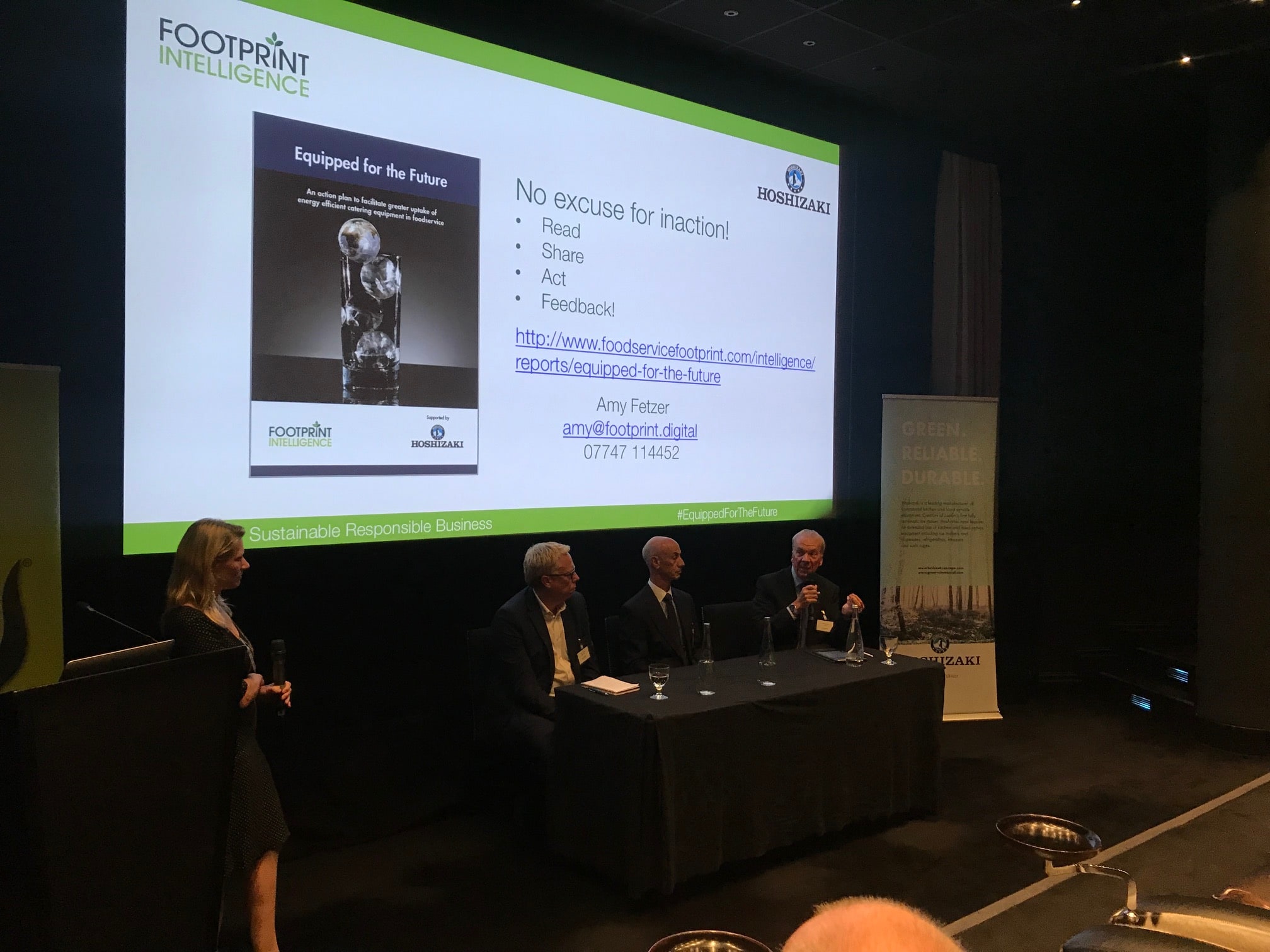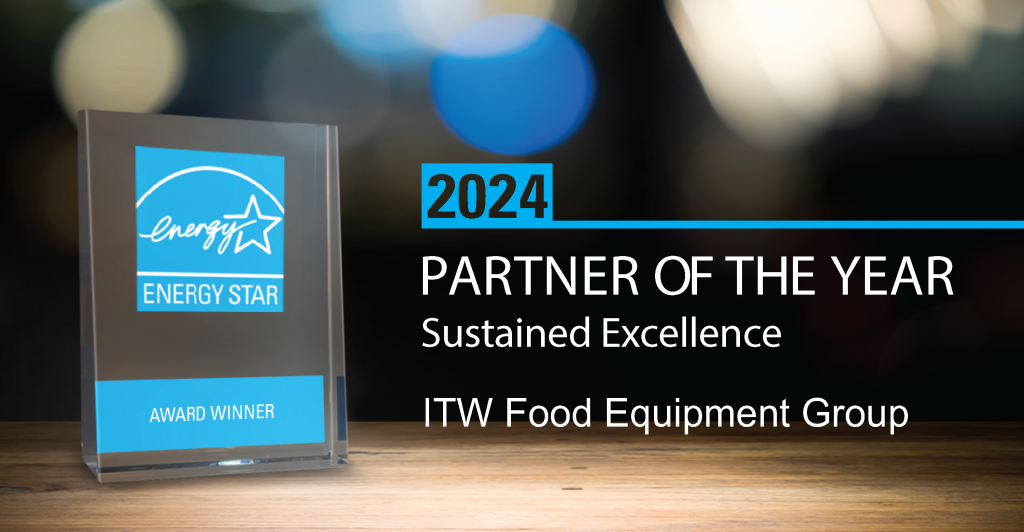
The UK foodservice industry could potentially save over a quarter of a billion pounds in energy costs every year through optimising kitchen equipment, improving equipment use and tailoring menu options. The findings in the Equipped for the Future report from Footprint Intelligence, supported by Hoshizaki, were presented earlier this week at an event at The Soho Hotel, London.
The report, authored by Amy Fetzer, head of research and analysis for Footprint Media Group, also revealed cost remains the most significant barrier for UK operators when purchasing energy efficient catering equipment. Approximately 50% of the foodservice industry experts surveyed for the report indicated equipment price was their main consideration when purchasing equipment. This, the report found, was all despite increased operator awareness that installing more sustainable equipment into commercial kitchens can provide significant lifetime savings.
Action plans
Equipped for the Future is divided into a series of practical ‘action plans’ for manufacturers, operators and government/industry, demonstrating clear and actionable methods for barriers to be overcome so buyers can ultimately reduce their business’ carbon footprint and “green their supply chain”.
The will is clearly already there from the industry to improve its energy efficient credentials, with 100% of those surveyed for the report agreeing “sustainibility was important to their customers”. In addition, 100% said the sustainability credentials of their suppliers “was important”.
The report reiterated findings from Carbon Trust that 63% of an operator’s energy is used in the kitchen, with each cooked meal costing £0.45 in energy use alone. “Not only can energy efficient equipment help the environment, but it can help company’s save money,” said Simon Frost, director, field sales and national accounts for Hoshizaki, who introduced the launch of the report.
Facilitating change
The goal of the report, said Fetzer, was to “change the status quo and to help facilitate the change collectively to increase the uptake of energy efficient equipment”. Fetzer also highlighted that this is a “very nuanced” debate with “no binary solutions”. That said, according to Fetzer, foodservice consultants tend to very much appreciate the benefits of energy efficient equipment, but queried if those “that hold the purse strings” were as well-informed or able to plan for the long-term as effectively.
The report found key factors such as a focus on reliability and functionality of equipment are of high importance to operators as well as cost. The price of hiring and retraining new employees, which can be as much as £15,000 per member of staff, often gets ignored. An operator that invests in more energy efficient equipment, for example choosing induction cooking systems over noisy gas ovens, can create a far more comfortable working environment for employees and prove to be a sound investment in the long run, said Fetzer.
Training staff effectively on equipment can also prevent misuse and enhance their feeling of responsibility. There can be, said Fetzer, between 45-70% of energy savings gained rom encouranging behavioural changes in the kitchen.
Expert panel
Fetzer also chaired a panel session at the launch of the report, featuring Mike Hanson, head of sustainable business at BaxterStorey; Steve Loughton, Hoshizaki UK managing director; and Keith Warren, director of Catering Equipment Suppliers Association (CESA).
“One of the biggest barriers to energy efficient equipment is lack of planning and strategy,” said Hanson. “Understanding the direction of travel will lead to efficiency.”
The industry, said Loughton – citing how advances in ‘connected kitchens’ will also contribute to greater energy efficiency – is “on the edge of a huge amount of things. We’re seeing equipment becoming more compact and multifunctional, but someone has to pay for the R&D and to conform to the requirements of the global markets. Nevertheless, there is an awakening of understanding of environmental impacts and sustainability concerns. Of course, if it costs the same, operators will embrace it.”
There is, said Warren, “already a lot of joined-up thinking in the manufacturing area,” with regards to energy efficiency.
In conclusion, Simon Frost summed up the positive mood of the panel that change is coming, while the desire to embrace energy efficient equipment is gaining momentum. “There is no longer any excuse for inaction. This needs to become today and tomorrow’s norm.”
The full report can be downloaded from this link.
Michael Jones
Pictured (l-r): Amy Fetzer, Mike Hanson, Steve Loughton, Keith Warren




